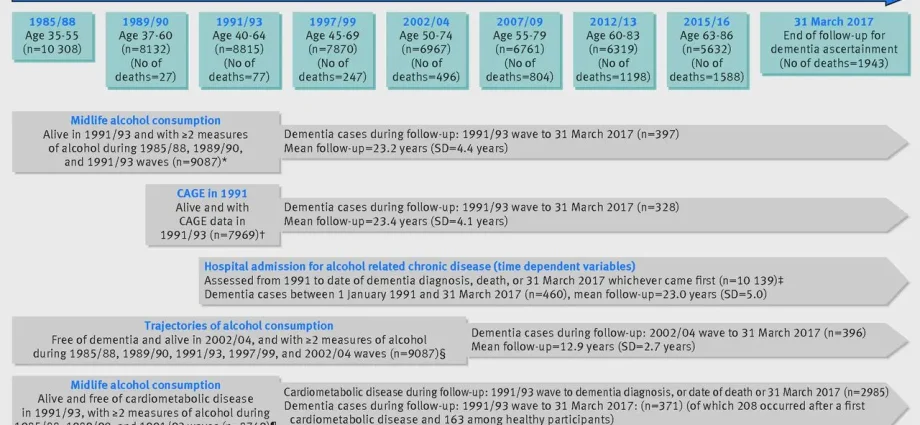Both long-term abstinence and excessive alcohol consumption in middle-aged people are associated with an increased likelihood of developing dementia, according to a recent study published in The BMJ journal.
- For about 23 years, scientists from the National Institute of Health and Medical Research (INSERM) in France and the University of London in Great Britain followed the fate of over 9 people. British officials
- The subjects’ alcohol consumption habits as well as medical data on various diseases, including the symptoms of senile dementia
- Study results show that excessive alcohol consumption as well as long-term abstinence is a risk factor for dementia
On the basis of the conducted analyzes, the researchers showed that middle-aged people who refrain from drinking alcohol or consume more than 14 units of alcohol per weekare more likely to experience significant decline in mental performance in old age. On the other hand, people who consume a moderate amount of alcohol, between 1 and 14 units per week, are the least likely to develop dementia.
In drinkers over 14 units of alcohol a week, each additional 7 units increases the risk of dementia by 17%. In this group of consumers, dementia is usually associated with chronic medical conditions resulting from long-term alcohol consumption.
At abstainers the likelihood of developing dementia is associated with an increased risk of cardiometabolic diseases, such as cardiovascular disease, diabetes, etc. These include conditions that can contribute to dementia, collectively identifying memory loss, thinking, and other cognitive functions.
– The results of our study show that excessive alcohol consumption is a risk factor for dementia. They are therefore an incentive for recommendations to use lower thresholds for maximum alcohol consumption to promote cognitive health later in life, the researchers say.
– At the same time, the results of our study should not encourage nonsmokers to start drinking, because alcohol consumption has harmful health effects in the form of increased mortality, neuropsychiatric disorders, liver cirrhosis and cancer – they add.
The standard unit of alcohol is 10 grams (or 12,5 milliliters) of pure ethyl alcohol, i.e. about 250 ml of 5% beer, 100 ml of 12% wine or 30 ml of 40% vodka. It is recommended that the weekly dose of alcohol should not exceed 28 units for men and 14 units for women. In the UK, 14 units of alcohol is a weekly maximum for both women and men.
Given that the number of people with dementia will triple by 2050 and effective treatment is lacking, prevention is key, the researchers add.
Experts say future research will need to focus on a more detailed analysis of lifelong alcohol consumption habits, which could help ‘shed more light’ on the link between alcohol and dementia.
You can read about the details of the study here.










